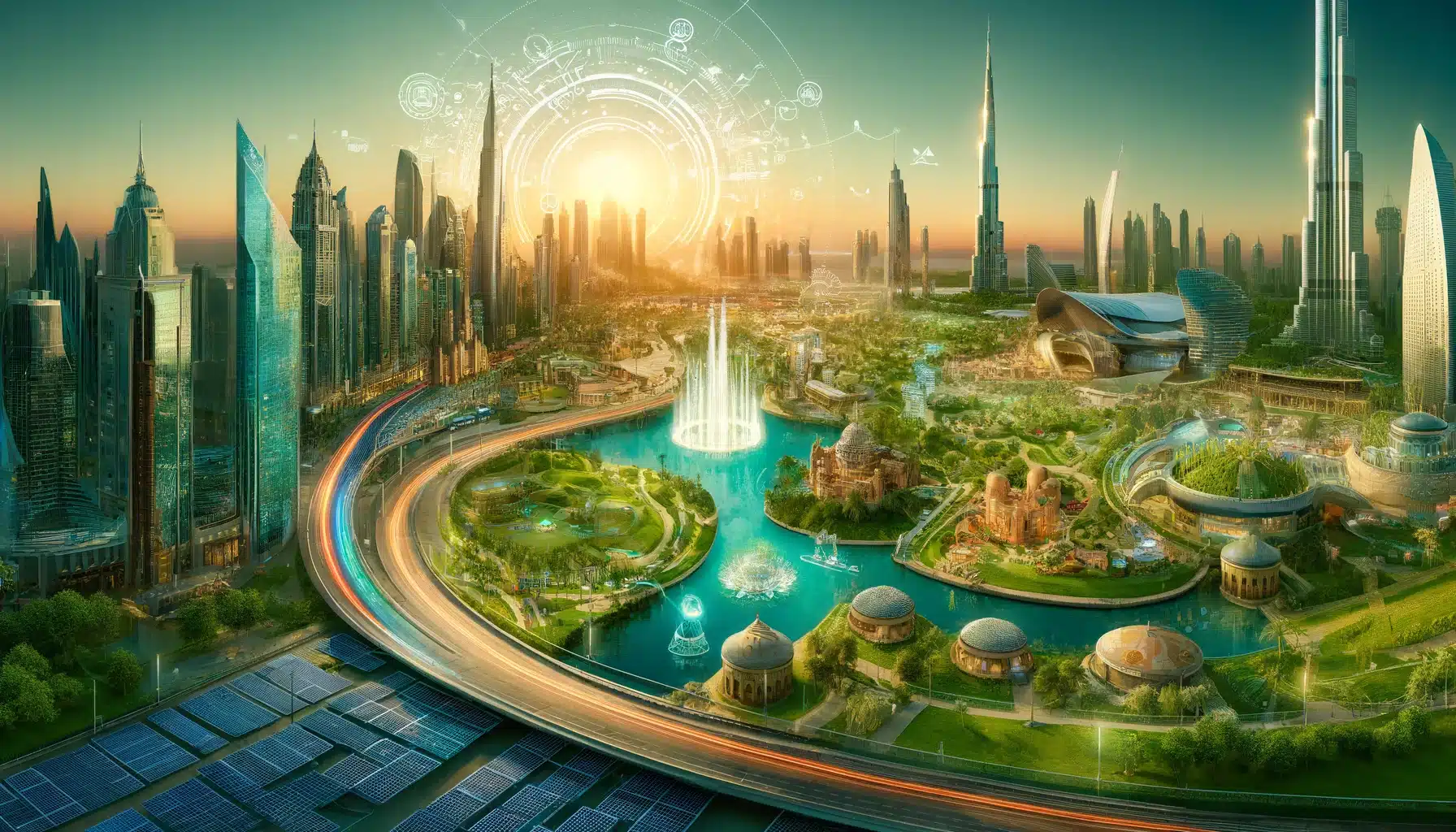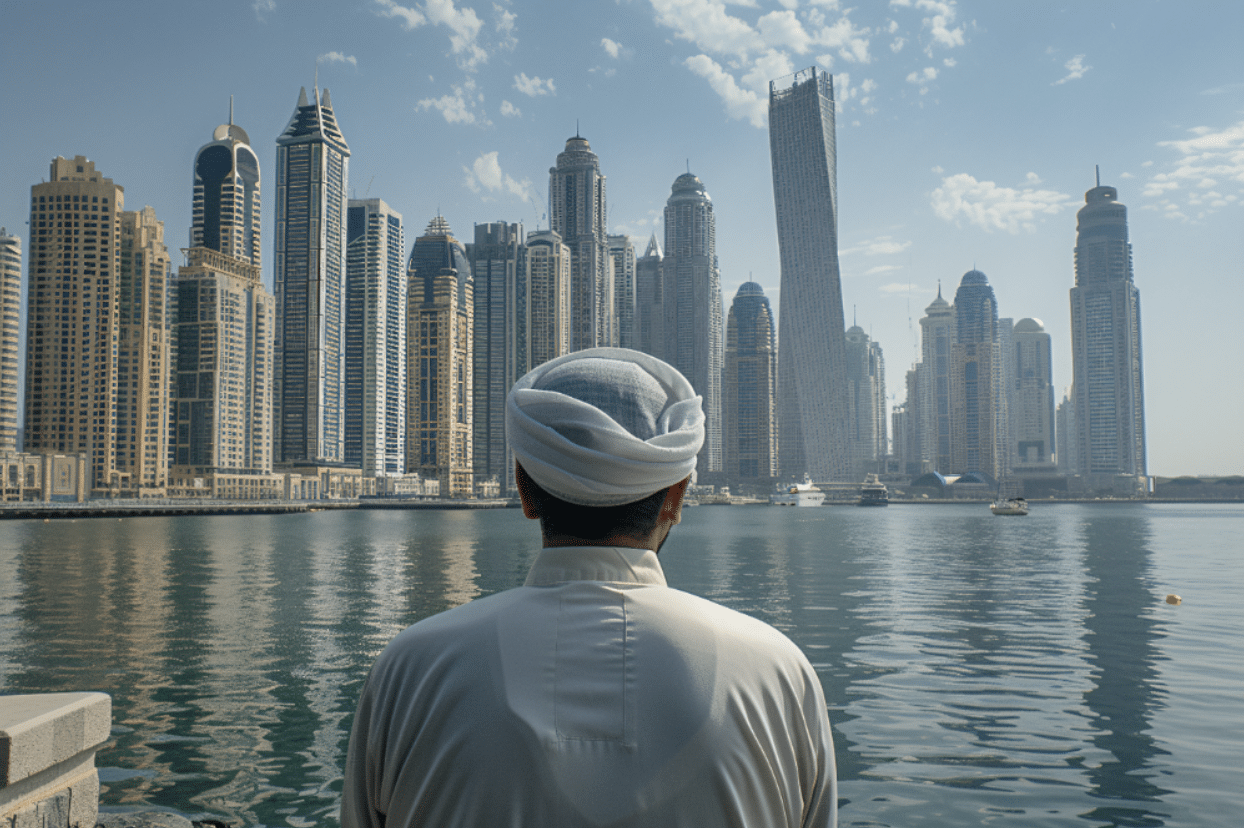Share
The travel and hospitality industry, recovering from the recent pandemic and global conflicts, now needs a fresh identity. The richness of the heritage, modern development, natural beauty, strategic position, and political stability and security make the UAE ready to host a new era of tourism.
During the past two decades, the United Arab Emirates has rapidly developed due to significant investments and human capital, becoming a renowned tourist destination and luring millions of visitors annually. Thus, the country has emerged globally as a production-driven hub, with its world-class infrastructure and iconic attractions such as the Burj Khalifa, the Dubai Fountain, Palm Jumeirah, and more.
Innovation and sustainability will be two factors that will contribute largely to making the change happen in the UAE and globally. These specific factors respond to the recent vision of tech-based and socially responsible travelers and provide the foundation for an increased influence of collaborative efforts on a global level.
How Innovation and Sustainability Fit With New Flow Of Travelers
Modern travelers are no longer just observers; they tend to contribute to the fabric of the places they are visiting and leave their mark. They want to engage on a more personal level with the destinations they are visiting, looking to discover more than the usual “must-see” landmarks and go for activities based on their interests and values. Instead of traditional traveling models, tourists today opt for deeper and intact interactions with their environments. This transition is due to an increased awareness of sustainability principles and the digital era.
Sustainability has outgrown its status of “fashionable” and ultimately became a critical part of the tourism industry. Green innovations in sustainable traveling spark profound changes in tourism, bringing this industry to friendly arrangements for nature and tourists. Moving from ecological aviation and sustainable housing instruments to digital nomads and applying blockchain technologies, the travel industry is advancing to accommodate eco-aware travelers’ tendencies.
The UAE’s strategic initiatives like the ‘Dubai Sustainable Tourism Stamp’ and the broader ‘Emirates Strategy for Tourism 2031’ show a firm resolve in environmental conservation and pursuing sustainable development trends. For instance, the National Tourism Strategy 2031 aims to increase the sector’s GDP contribution to AED 450 billion by 2031, with an annual increase of AED 27 billion. Firstly, it is made to attract investments of AED 100 billion, which will be added to the economy by 2031. And that is why the strategy will lead the Gulf states to the community of nations where tourism forms the core of sustainability, technological developments, and cultural exchanges. The initiative includes a predetermined route that determines the strategy for competitive advantage and a permanent influx of tourists to come in the future.
Innovation in tourism and hospitality can also be found outside the sustainability area. Applying the most current technologies, such as blockchain, IoT, and digital AI, for messaging and identification functions and enhanced services is redefining the industry. Artificial intelligence (AI) and virtual reality (VR) technologies developments for customer service and virtual tours are only some of the first applications of technology that set the pace for this shift and lead to a more personalized and hassle-free travel experience.
Smart contracts on the blockchain can facilitate direct transactions between travelers and service providers, cutting out intermediaries and ensuring fair compensation for local businesses. Blockchain can also be used to verify and track carbon offset initiatives, providing travelers with a tangible way to contribute to environmental conservation efforts.
Even though there are many reasons to be optimistic, there are challenges. Adopting novel technologies, infrastructural structures of green types, and constant modifications in consumers’ perceptions call for global collaboration and adaptive policies.
Investopia events and activities worldwide play a significant role in formulating collaboration, brainstorming strategies, and sharing knowledge, insights, and solutions to help spread sustainable practices. Fruitful collaborations from different sectors can boost the innovation potential to ensure that growth in the tourism sector happens in harmony with ecological well-being.
Conclusion: Traveling Forward Sustainably
Tourism and hospitality, especially in the UAE, will continue to drive a prosperous future pushed by innovation and sustainability. Under its leadership’s supervision and wise vision, the country has constantly cooperated with the international community to advance sustainable tourism. Recognizing the sector’s importance, the government has invested massively to improve the sector’s infrastructure and develop strong attractions to entice visitors from all over the world.
This goal will only be accomplished through a well-thought-out plan that involves better infrastructure and building sustainable practices like renewable energy and water conservation. Embracing these eco-friendly measures will enable the UAE to protect its natural and cultural legacy while catering to the increasing number of nature lovers and responsible modern travelers for whom sustainable and green tourism is the leading vacation choice.









